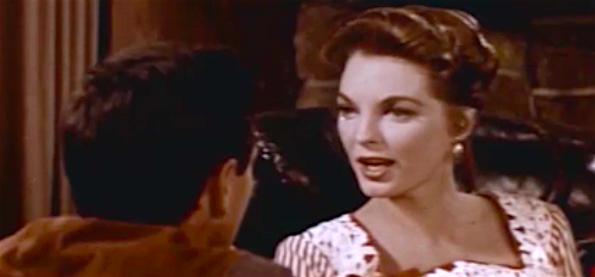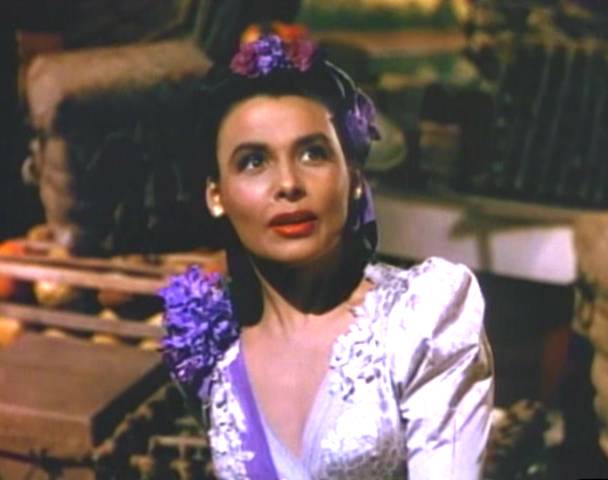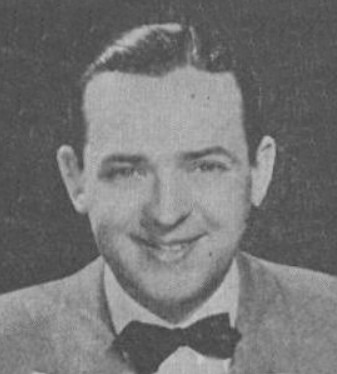|
Julie Is Her Name
''Julie Is Her Name'' is the first LP album by Julie London, released by Liberty Records in December, 1955, under catalog numbers LRP-3006, in monaural form. It was subsequently reprocessed to produce a stereophonic album, and this stereophonic version was released on May 25, 1960 as catalog number LST-7037. The album featured Barney Kessel on guitar and Ray Leatherwood on bass. The first track, " Cry Me a River", was released as a single (Liberty 55006) and was London's biggest chart success. The album was reissued, combined with the 1958 Julie London album ''Julie Is Her Name, Volume II,'' in compact disc format, by EMI in 1992. Another reissue as a CD was produced by Hallmark Music, combined with the 1956 Julie London album, '' Lonely Girl.'' Track listing References External links ''Julie Is Her Name''(Adobe Flash Adobe Flash (formerly Macromedia Flash and FutureSplash) is a multimedia Computing platform, software platform used for production of Flash animation, ani ... [...More Info...] [...Related Items...] OR: [Wikipedia] [Google] [Baidu] |
Julie London
Julie London (née Peck; September 26, 1926 – October 18, 2000) was an American singer and actress whose career spanned more than 40 years. A torch singer noted for her sultry, languid contralto vocals, London recorded over thirty albums of pop and jazz standards between 1955 and 1969. Her recording of " Cry Me a River", a track she introduced on her debut album, was inducted into the Grammy Hall of Fame in 2001. In addition to her musical notice, London was nominated for a Golden Globe Award in 1974 for her portrayal of nurse Dixie McCall in the television series ''Emergency!''. Born in Santa Rosa, California, to vaudevillian parents, London was discovered while working as an elevator operator in downtown Los Angeles, and she began her career as an actress. London's 35-year acting career began in film in 1944, and included roles as the female lead in numerous westerns, co-starring with Rock Hudson in '' The Fat Man'' (1951), with Robert Taylor and John Cassavetes in '' ... [...More Info...] [...Related Items...] OR: [Wikipedia] [Google] [Baidu] |
Axel Stordahl
Axel Stordahl (August 8, 1913 – August 30, 1963) was an American arranger who was active from the late 1930s through the 1950s. He is perhaps best known for his work with Frank Sinatra in the 1940s at Columbia Records. With his sophisticated orchestrations, Stordahl is credited with helping to bring pop arranging into the modern age. Early years Stordahl was born in Staten Island, New York, United States, to Norwegian immigrant parents. He began his career as a trumpeter in jazz bands that played around Long Island and the Catskills during the late 1920s and early 1930s. He also began arranging around this time, and in 1933 he joined Bert Bloch's orchestra in both capacities. Over the next couple of years, Stordahl sang on the side in a vocal trio dubbed the Three Esquires. Big bands In 1936, he joined Tommy Dorsey's new orchestra and soon became the band's main arranger. The same year appeared their first big hit, "I'm Getting Sentimental Over You". The tune quickly beca ... [...More Info...] [...Related Items...] OR: [Wikipedia] [Google] [Baidu] |
Irving Berlin
Irving Berlin (born Israel Beilin; yi, ישראל ביילין; May 11, 1888 – September 22, 1989) was a Russian-American composer, songwriter and lyricist. His music forms a large part of the Great American Songbook. Born in Imperial Russia, Berlin arrived in the United States at the age of five. He published his first song, "Marie from Sunny Italy", in 1907, receiving 33 cents for the publishing rights,Starr, Larry and Waterman, Christopher, American Popular Music: From Minstrelsy to MP3, Oxford University Press, 2009, pg. 64 and had his first major international hit, "Alexander's Ragtime Band", in 1911. He also was an owner of the Music Box Theatre on Broadway. For much of his career Berlin could not read sheet music, and was such a limited piano player that he could only play in the key of F-sharp; he used his custom piano equipped with a transposing lever when he needed to play in keys other than F-sharp. "Alexander's Ragtime Band" sparked an international dance craze ... [...More Info...] [...Related Items...] OR: [Wikipedia] [Google] [Baidu] |
Say It Isn't So (Irving Berlin Song)
"Say It Isn't So" is a popular torch song by Irving Berlin, published in 1932. The song was written when Berlin was suffering a loss of confidence following several setbacks, and he initially placed the song in a drawer, feeling that it would not be successful. However, one of Berlin's employees, Max Winslow, heard it, and on his own initiative, took it to Rudy Vallée, who was then a major star on radio. Vallee sang it on his radio show and it became an immediate hit. George Olsen and His Orchestra released a version in 1932 that reached No. 1, and other popular versions in 1932 were by Ozzie Nelson, Connee Boswell and Vallée. Alfredo Antonini and his orchestra collaborated with Victoria Cordova and John Serry Sr. to record the work for Muzak in the 1940s. Cover versions The song has been recorded many times by different artists. Notable versions include: * Connee Boswell (1932, No. 10) * Bing Crosby recorded the song for his album ''Bing Crosby's Treasury - The Songs I Lov ... [...More Info...] [...Related Items...] OR: [Wikipedia] [Google] [Baidu] |
Cole Porter
Cole Albert Porter (June 9, 1891 – October 15, 1964) was an American composer and songwriter. Many of his songs became standards noted for their witty, urbane lyrics, and many of his scores found success on Broadway and in film. Born to a wealthy family in Indiana, Porter defied his grandfather's wishes for him to practice law and took up music as a profession. Classically trained, he was drawn to musical theatre. After a slow start, he began to achieve success in the 1920s, and by the 1930s he was one of the major songwriters for the Broadway musical stage. Unlike many successful Broadway composers, Porter wrote the lyrics as well as the music for his songs. After a serious horseback riding accident in 1937, Porter was left disabled and in constant pain, but he continued to work. His shows of the early 1940s did not contain the lasting hits of his best work of the 1920s and 1930s, but in 1948 he made a triumphant comeback with his most successful musical, ''Kiss Me, Kate ... [...More Info...] [...Related Items...] OR: [Wikipedia] [Google] [Baidu] |
I Love You (Cole Porter Song)
"I Love You" is a song written by Cole Porter in 1944 for his stage musical ''Mexican Hayride''. ''The New York Times'' reviewed the show, saying, among other things: "Of Mr. Porter's score, the best number bears the title almost startling in its forthrightness, "I Love You," and is the property of Mr. Evans" (Wilbur Evans). However, the rather generic lyrics of the song were due to a challenge given by Porter. His friend Monty Woolley contended that Porter's talent lay in the off-beat and the esoteric, maintaining that he could never take a cliché title like "I Love You" and write lyrics that included the banal sentiment: "It's spring again, and birds on the wing again" and be successful. Porter accepted the challenge with the result that the song eventually topped the hit parade. Porter remarked that the "superior melody overcame the ordinary lyric". In 1945, Ira B. Arnstein sued Cole Porter for plagiarizing his work and filed a suit in the Federal Court. He had for twenty year ... [...More Info...] [...Related Items...] OR: [Wikipedia] [Google] [Baidu] |
Oscar Hammerstein II
Oscar Greeley Clendenning Hammerstein II (; July 12, 1895 – August 23, 1960) was an American lyricist, librettist, theatrical producer, and (usually uncredited) director in the musical theater for almost 40 years. He won eight Tony Awards and two Academy Awards for Best Original Song. Many of his songs are standard repertoire for vocalists and jazz musicians. He co-wrote 850 songs. He is best known for his collaborations with composer Richard Rodgers, as the duo Rodgers and Hammerstein, whose musicals include ''Oklahoma!'', '' Carousel'', '' South Pacific'', ''The King and I'', and ''The Sound of Music''. Described by Stephen Sondheim as an "experimental playwright", Hammerstein helped bring the American musical to new maturity by popularizing musicals that focused on stories and character rather than the lighthearted entertainment that the musical had been known for beforehand. He also collaborated with Jerome Kern (with whom he wrote ''Show Boat''), Vincent Y ... [...More Info...] [...Related Items...] OR: [Wikipedia] [Google] [Baidu] |
Jerome Kern
Jerome David Kern (January 27, 1885 – November 11, 1945) was an American composer of musical theatre and popular music. One of the most important American theatre composers of the early 20th century, he wrote more than 700 songs, used in over 100 stage works, including such classics as " Ol' Man River", "Can't Help Lovin' Dat Man", " A Fine Romance", "Smoke Gets in Your Eyes", "The Song Is You", "All the Things You Are", "The Way You Look Tonight" and "Long Ago (and Far Away)". He collaborated with many of the leading librettists and lyricists of his era, including George Grossmith Jr., Guy Bolton, P. G. Wodehouse, Otto Harbach, Oscar Hammerstein II, Dorothy Fields, Johnny Mercer, Ira Gershwin and Yip Harburg. A native New Yorker, Kern created dozens of Broadway musicals and Hollywood films in a career that lasted for more than four decades. His musical innovations, such as 4/4 dance rhythms and the employment of syncopation and jazz progressions, built on, rather than rejec ... [...More Info...] [...Related Items...] OR: [Wikipedia] [Google] [Baidu] |
Can't Help Lovin' That Man
"Can't Help Lovin' Dat Man" with music by Jerome Kern, and lyrics by Oscar Hammerstein II, is one of the most famous songs from their classic 1927 musical play ''Show Boat'', adapted from Edna Ferber's 1926 novel. Context The song, written in a blues tempo, is sung in the show by several characters, but is most closely associated with the character Julie, the biracial leading lady of the showboat ''Cotton Blossom''. It is Julie who is first heard singing the song – to Magnolia, the daughter of Cap'n Andy Hawks and his wife Parthenia (Parthy), owners of the showboat. In the musical's plot, the number is supposed to be a song familiar to African-Americans for years, and this provides one of the most dramatic moments in the show. When Queenie, the black cook, comments that it is strange that light-skinned Julie knows the song because only black people sing it, Julie becomes visibly uncomfortable. Later, we learn that this is because Julie is " passing" as white – she and her whit ... [...More Info...] [...Related Items...] OR: [Wikipedia] [Google] [Baidu] |
Jimmy Dorsey
James Francis Dorsey (February 29, 1904 – June 12, 1957) was an American jazz clarinetist, saxophonist, composer and big band leader. He recorded and composed the jazz and pop standards "I'm Glad There Is You (In This World of Ordinary People)" and " It's The Dreamer In Me". His other major recordings were "Tailspin", " John Silver", " So Many Times", " Amapola", "Brazil ( Aquarela do Brasil)", " Pennies from Heaven" with Bing Crosby, Louis Armstrong, and Frances Langford, "Grand Central Getaway", and "So Rare". He played clarinet on the seminal jazz standards "Singin' the Blues" in 1927 and the original 1930 recording of "Georgia on My Mind", which were inducted into the Grammy Hall of Fame. Early life Jimmy Dorsey was born in Shenandoah, Pennsylvania, United States, the first son of Theresa Langton Dorsey and Thomas Francis Dorsey. His father, Thomas, was initially a coal miner, but would later become a music teacher and marching-band director. Both Jimmy and his younger ... [...More Info...] [...Related Items...] OR: [Wikipedia] [Google] [Baidu] |
I'm Glad There Is You
"I'm Glad There Is You (In This World of Ordinary People)" is a song written by Jimmy Dorsey and Paul Madeira (sometimes credited as Paul Mertz) first published in 1941. It has become a jazz and pop standard. Original recording The song was released by Jimmy Dorsey and His Orchestra in 1942 by Decca Records backed with "Tomorrow's Sunrise" featuring Bob Eberly on vocals. The song was recorded on December 22, 1941, in New York City. The recording was reviewed in '' Billboard'': "With the customary Dorsey eclat, Jimmy enters two new ballads in this couplet....Maestro Jimmy had a hand in writing the plattermate. It's a love song, with the story steeped in philosophical thoughts rather than June-moon wordage. Eberly sings it from edge, saxophones and Jimmy's clarinet carving a half chorus for themselves before Bob is brought back to finish it out." The song was also released in 1946, recorded on February 6, 1946, by Jimmy Dorsey and His Orchestra with Dee Parker on vocals. The B sid ... [...More Info...] [...Related Items...] OR: [Wikipedia] [Google] [Baidu] |
Dorothy Fields
Dorothy Fields (July 15, 1904 – March 28, 1974) was an American librettist and lyricist. She wrote over 400 songs for Broadway musicals and films. Her best-known pieces include "The Way You Look Tonight" (1936), "A Fine Romance" (1936), "On the Sunny Side of the Street" (1930), " Don't Blame Me" (1948), "Pick Yourself Up" (1936), "I'm in the Mood for Love" (1935), "You Couldn't Be Cuter" (1938) and " Big Spender" (1966). Throughout her career, she collaborated with various influential figures in the American musical theater, including Jerome Kern, Cy Coleman, Irving Berlin, and Jimmy McHugh. Along with Ann Ronell, Dana Suesse, Bernice Petkere, and Kay Swift, she was one of the first successful Tin Pan Alley and Hollywood female songwriters. Early life Fields was born in Allenhurst, New Jersey, and grew up in New York City. In 1923, Fields graduated from the Benjamin School for Girls in New York City. At school, she was outstanding in the subjects of English, drama, and baske ... [...More Info...] [...Related Items...] OR: [Wikipedia] [Google] [Baidu] |






